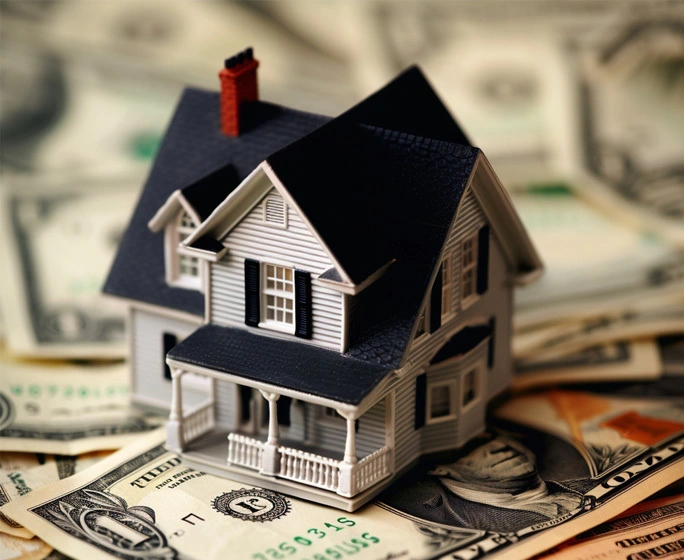
Navigating Financing Options for Home Renovations
Embarking on a home renovation project can be an exciting journey towards creating your dream living space. However, financing these projects can often pose a challenge. At DMV Dream Builders, we specialize in home construction projects across the DMV area, and we understand that securing the right financing is crucial for bringing your renovation vision to life. In this blog post, we’ll explore various financing options available to homeowners, helping you make informed decisions to fund your renovation with confidence.
1. Home Equity Loans
A home equity loan allows you to borrow against the equity you’ve built up in your home. This type of loan provides a lump sum of money, which you repay over a fixed term with a fixed interest rate. It’s an excellent option for homeowners who have significant equity in their homes and need a substantial amount of money for large renovation projects.
Pros:
- Fixed interest rate and predictable monthly payments
- Potentially lower interest rates compared to personal loans
Cons:
- Uses your home as collateral, posing a risk if you fail to repay
- Requires sufficient home equity to qualify
2. Home Equity Line of Credit (HELOC)
A HELOC is similar to a home equity loan but functions more like a credit card. You can borrow as needed up to a certain limit during the draw period, and you only pay interest on the amount you borrow. This option is ideal for ongoing or phased renovation projects where you might not need all the funds upfront.
Pros:
- Flexibility to borrow as needed
- Typically lower interest rates than personal loans
Cons:
- Variable interest rates can lead to fluctuating monthly payments
- Your home is used as collateral
3. Cash-Out Refinance
Cash-out refinancing involves replacing your existing mortgage with a new one that’s larger than what you currently owe. The difference is given to you in cash, which can be used for your renovation. This option can be beneficial if you can secure a lower interest rate on the new mortgage.
Pros:
- Potential to lower your mortgage interest rate
- Provides a lump sum of money for renovations
Cons:
- Extends the term of your mortgage
- Closing costs and fees can be significant
4. Personal Loans
Personal loans are unsecured loans that don’t require you to use your home as collateral. They typically have higher interest rates than home equity loans or HELOCs but can be a good option if you don’t have significant home equity or don’t want to risk your home.
Pros:
- No collateral required
- Fixed interest rates and predictable payments
Cons:
- Higher interest rates than secured loans
- Shorter repayment terms can result in higher monthly payments
5. Credit Cards
For smaller renovation projects, using a credit card might be a viable option. Some credit cards offer promotional 0% APR periods, which can help you finance your project without incurring interest, provided you pay off the balance within the promotional period.
Pros:
- Convenient and easy to use
- Promotional 0% APR offers can save on interest
Cons:
- High-interest rates after promotional periods end
- Potential to accumulate significant debt if not managed carefully
6. Government Loans and Grants
Various government programs offer loans and grants for home renovations, especially if they involve energy-efficient improvements or are necessary for health and safety. Examples include the FHA 203(k) loan, which allows you to finance both the purchase of a home and its renovation.
Pros:
- Favorable terms and conditions
- Support for specific types of renovations
Cons:
- Strict eligibility requirements
- Lengthy application processes
7. Savings and Investment Accounts
Using your savings or tapping into investment accounts can be a straightforward way to finance your renovation. This approach avoids incurring debt and interest payments, making it an attractive option if you have sufficient funds set aside.
Pros:
- No debt or interest payments
- Full control over your budget
Cons:
- Depletes your savings, potentially affecting financial security
- Limits liquidity for other financial needs
Choosing the Right Financing Option
Selecting the best financing option depends on various factors, including the size of your renovation project, your financial situation, and your risk tolerance. Here are a few tips to help you decide:
- Assess Your Budget: Determine the total cost of your renovation project and how much you can afford to borrow.
- Consider Your Home Equity: If you have substantial equity in your home, options like home equity loans or HELOCs might be more favorable.
- Evaluate Interest Rates: Compare interest rates and terms across different financing options to find the most cost-effective solution.
- Think About Repayment Terms: Choose a financing option with repayment terms that fit your financial situation and long-term plans.
Conclusion
Financing your home renovation doesn’t have to be daunting. By exploring the various options available, you can find a solution that best fits your needs and allows you to bring your renovation dreams to life. At DMV Dream Builders, we are committed to helping homeowners in the DMV area achieve their renovation goals with expert guidance and high-quality craftsmanship.
If you’re ready to start your renovation project or need assistance with planning and financing, contact DMV Dream Builders today. Our team of professionals is here to support you every step of the way, ensuring your home renovation is a smooth and successful experience.